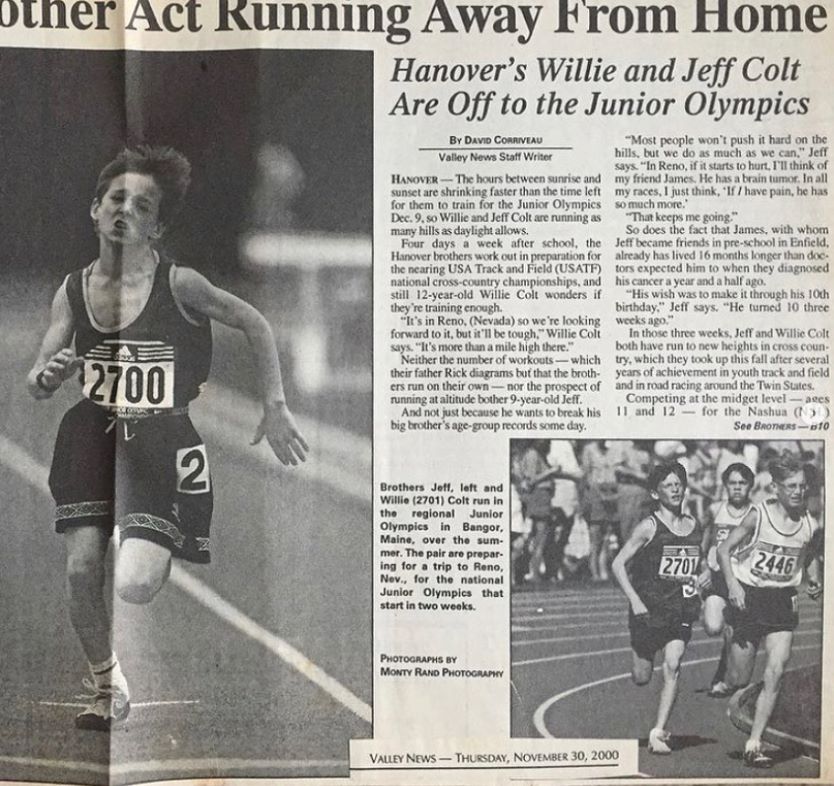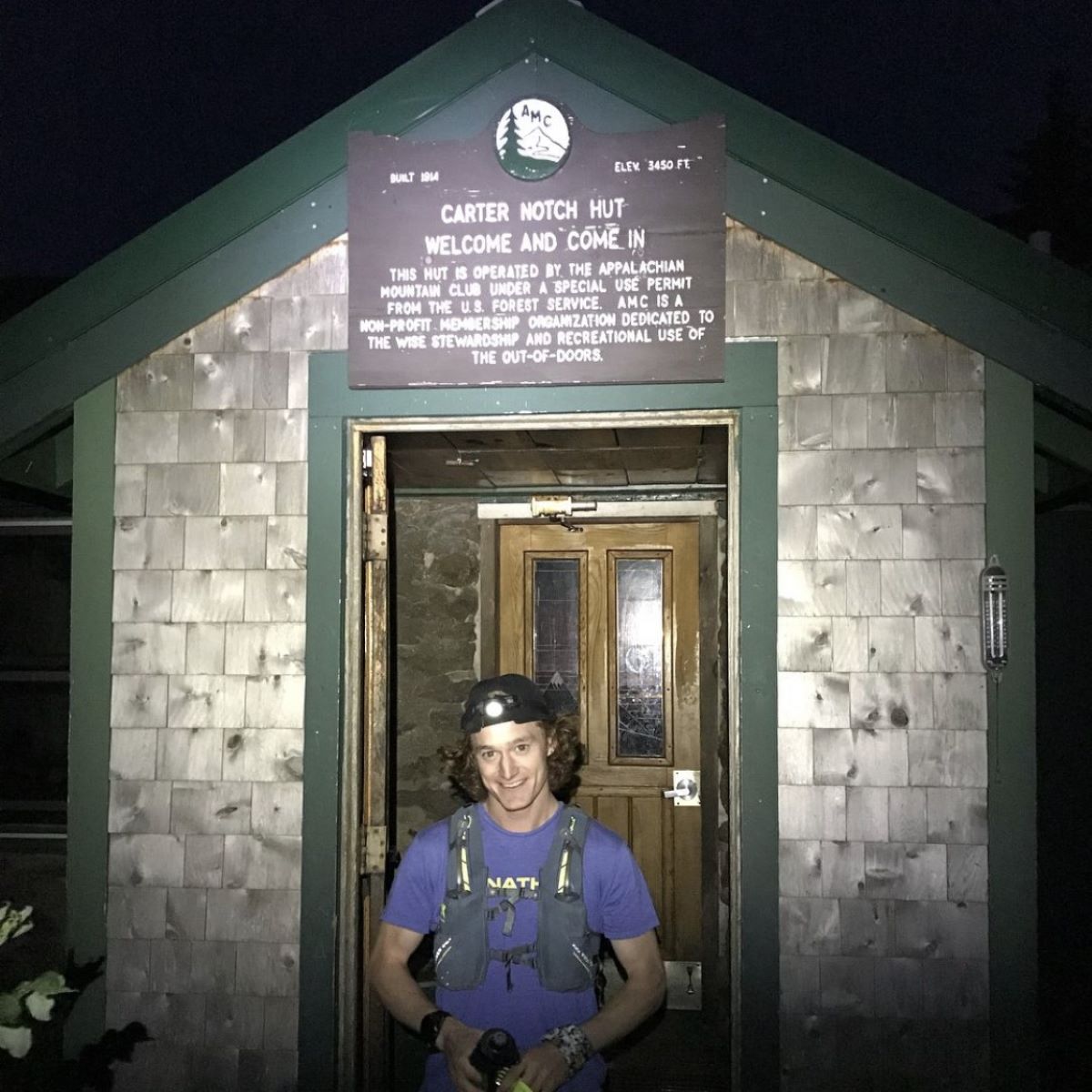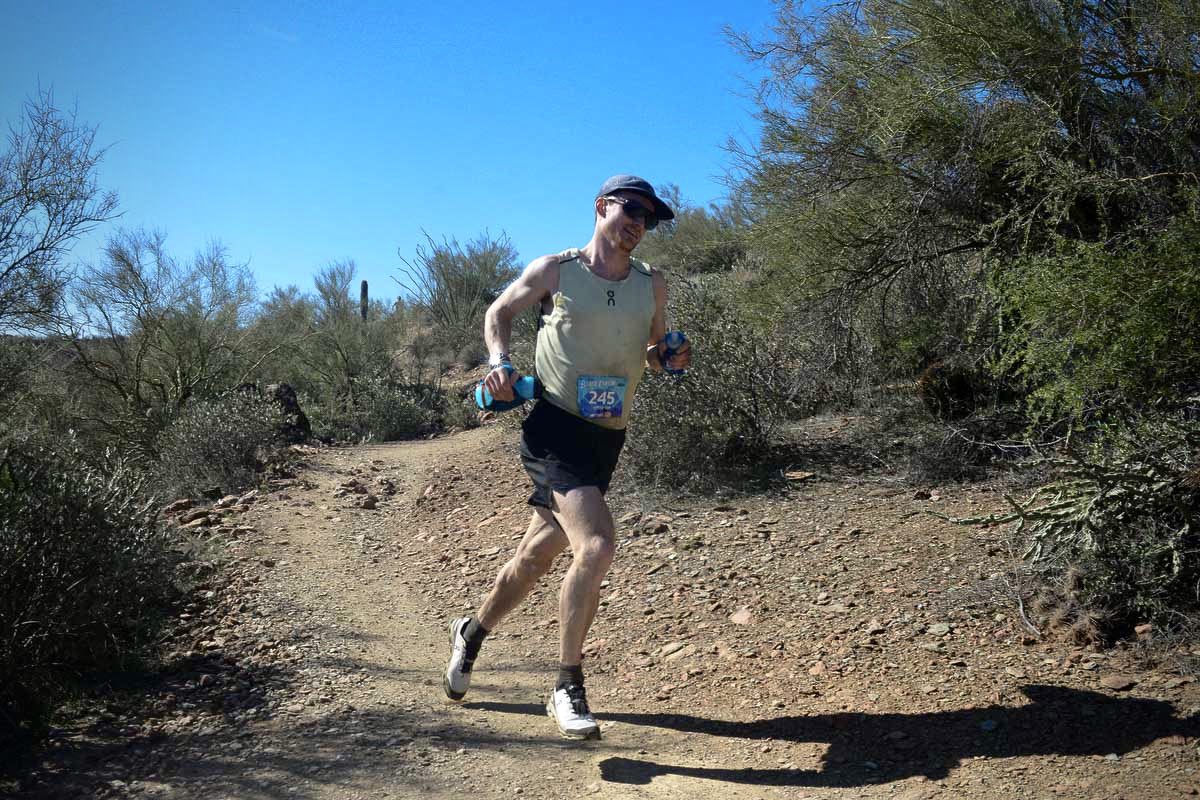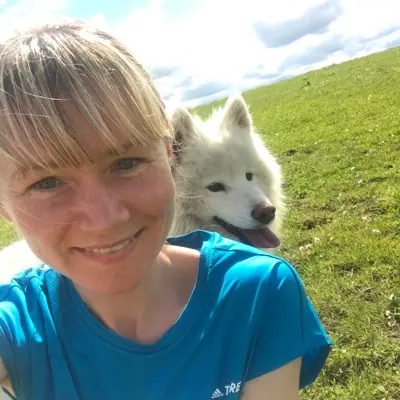Team USA ultrarunner Jeff Colt’s childhood was shaped by running, skiing, and adventuring in the White Mountains of New Hampshire. The third of three children from an athletic family, he grew up with a competitive streak and a strong spirit of adventure.
This winning combination has led him to climb up the ranks of ultrarunning over the last six years, culminating in taking his place on the USA team that brought home gold in the men’s 80-kilometer race at the 2022 Trail and Mountain Running World Championships. Over the course of our hour-long chat, I got an insight into not only the talented athlete but the stubbornly determined character behind his results.
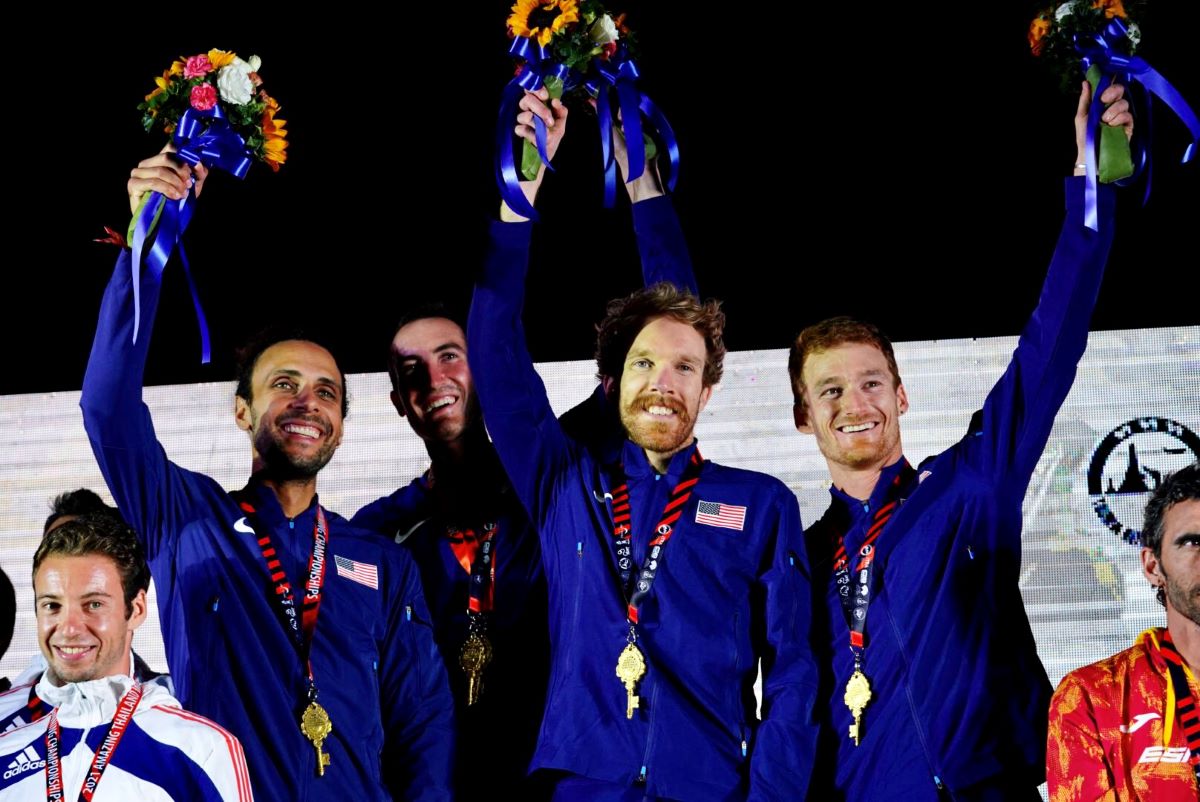
The USA men’s 80k team being presented with gold at the 2022 Trail and Mountain Running World Championships. Jeff Colt is on the right. All photos courtesy of Jeff Colt unless otherwise noted.
Jeff Colt was born and raised in Hanover, New Hampshire, near the White Mountains. His older brother and sister were both strong athletes, and he said, “my childhood was definitely shaped by chasing them around!” By age seven, he was already both skiing and running competitively.
Although his competitive running was in the track-and-field and cross-country formats, he always had a fondness for running on trails and said, “It was very easy for my brother and me to leave the house and go for runs through the woods and come back home and not really have our parents worry too much. We lived right next to this big nature preserve, so running on trails was my introduction to running. I’ve never really loved running on the track … Running on trails is really where I feel that sense of flow state.”
Colt’s father was a middle-school track coach, and he said that although he and his siblings were encouraged to explore different sports, they were never pressured, which helped them always to maintain their love of sport. Colt said, “I had early success as a cross-country runner in elementary school and then middle school. In high school, I had a remarkable coach named Jim Eakin, and he succeeded at challenging me while also impressing the value of running as a lifelong passion.”
In terms of his skiing career, Colt pursued both Alpine skiing and Nordic combined as a teenager. He said, “I was very focused on Alpine ski racing until I was 16 years old or so. That’s when I also started performing better at Nordic combined. In the ski racing world, I got to the FIS [Federation of International Skiing] level of ski racing.”
He developed a preference for Nordic combined, as the format for racing led to a more healthy style of competition. Colt explained, “In an Alpine ski race, one skier is on the course at a time, and then once you’ve done your run, really all you can do is hope that no one else beats you. And in my mind, that always stood out as very toxic. To be just standing there, waiting and hoping no one else beats you, it didn’t feel as good as Nordic or Nordic combined where everyone is out suffering through the same race together.”
Colt continued pursuing Nordic combined, as well as ski jumping, until the end of high school — when a fall made him look differently at the risk-reward balance of the sport. He said, “I landed on my head, I went unconscious for a couple of minutes, and I ended up having a compression fracture in my lower back. And it was like, Alright, maybe I shouldn’t continue trying to do this.”
While this incident, for the most part, marked the end of his competitive skiing career, skiing continues to be a huge part of Colt’s life and training around his home in Carbondale, Colorado. He said, “Skiing in so many ways is my balance to running. I do them both at the same time. I run right through the winter as well … It’s been a really great balance for me. And there’s a lot of elements of skiing that have proven advantageous for my running, in terms of durability and general strengthening.”
He is also co-owner and operator of ZipFit custom ski boot liners, at which he continues to work full-time alongside training and racing.
In college, Colt continued to pursue cross-country running but was gradually falling out of love with the discipline. Concurrently, his summer job working in the hut system of the White Mountains led him further into the world of long-distance trail running.
He said, “I really started dipping my toes into the long-distance trail stuff while I was working in the huts through the Hut Traverse, which connects the eight AMC [Appalachian Mountain Club] huts in the White Mountains. My first summer working in the huts, in 2011, I attempted the 46-mile Hut Traverse. I think I made it 32 or 33 miles and ended up dropping out. I just had no idea how to pace over that kind of distance. I returned to it in 2014 and had more success — I finished the route — but I still very much wanted to improve.”
In 2015, Colt ran the Vermont 50 Mile and failed to finish, admitting that “I went out really hard, thinking I wanted to win.” The following fall, having gotten to grips somewhat with ultramarathon pacing, he won his first 50k race.
Upon moving to Colorado in late 2016, through both his new home and his work, Colt found himself further immersed in the world of ultramarathon racing. He said, “In Colorado, the races are very much part of the running culture. At the time, I was working in public relations, and my account that I worked on was for Hoka.”
From 2016 to 2019, Colt set about pursuing the most competitive races, with the main goals in mind of earning a Golden Ticket into Western States 100 and securing a brand sponsorship. He was moving up through the field, taking fifth at the Bandera 100k in 2018 and moving up to third the following year.
In 2019, he traveled to Chamonix to race the CCC. He said, “I figured if I could place top five at CCC, I could maybe land a partnership with a brand.” It was not his day, however, and against the run of play, Colt failed to finish the race.
He said, “I ended up hurting my foot, but I was in totally the wrong headspace. Coming into Champex-Lac, I was in maybe 25th place, and I was discouraging myself, thinking, There is no way I can close this gap. And I had this foot pain that was getting worse. I really broke down. This goal that I had been working so hard to get to was getting further and further out of reach.”
Following CCC, he elected to take some time out from racing, but with the onset of the COVID-19 pandemic in early 2020, this break proved longer than originally planned. Ironically, it was during this long break from racing that Colt finally acquired the breakthrough brand partnership he had been trying to race his way into.
He said, “I ended up starting a partnership with On Running during that year out from competitive running. Sometimes the universe works in these strange ways, and when I stepped back from trying to get a sponsorship — I got a sponsorship.” He went on, “I felt I had a new wind in my sails because this company believes in me and wants me to represent their brand.”
In 2021, Colt could finally resume racing, and his first goal race was the IMTUF 100 Mile, which he won by more than an hour. Part of the significance of this race for Colt was that it was a Hardrock 100 qualifier, and he said, “My dream race is the Hardrock 100. I’m willing to be patient, and hopefully, one day, I get in.”
More than anything, Colt’s mental headspace had changed in the time away from racing, and he returned with a new perspective. He said, “I went into [IMTUF 100 Mile] with very few expectations. I had recalibrated my life balance and looked at my priorities, and while I love running, it’s not my highest priority.”
The IMTUF 100 Mile was just the confidence boost Colt needed before going into 2022 — the year when he would really come into his own. He said, “I did not know what to expect at Black Canyon 100k [in February 2022], and I knew people didn’t have any expectations of me. I was showing up, and I knew that I wanted to give the Western States 100 [Golden Ticket] a shot.”
Colt ran a strategic race, deliberately holding back in the first half and focusing on hydration and keeping himself intact for the second half when the race would really begin. He had been told by previous competitors that many fall into the trap of racing hard in the first 20 miles, which is downhill and very runnable, but few are fresh enough to be in a position to race the final section.
He said, “When I decided to really start racing around mile 34, it was a wild sensation because it felt like everyone else was standing still … I just ran the rest of the race and witnessed all these other runners fall back and fall behind me.” Colt climbed up through the field to finish in third place, finally securing his long-coveted Golden Ticket into the Western States 100.
Colt points to being in a positive headspace going into the Black Canyon 100k as being crucial to the race’s good outcome and to positive outcomes in ultrarunning in general. He said, “You can train as much as you want, but if you’re not mentally ready to race on that day, you’re not going to have what it takes.”
Unfortunately, COVID-19 scuppered Colt’s plans to race to his full potential at the Western States 100. He said, “I got COVID-19 just before the Western States 100, and honesty, that was as big of a letdown as I could imagine. I had been manifesting a top-10 finish for so long.” Despite still suffering the after-effects of the virus, Colt made the best of the opportunity to run States and still managed to grind out an 11th-place finish.
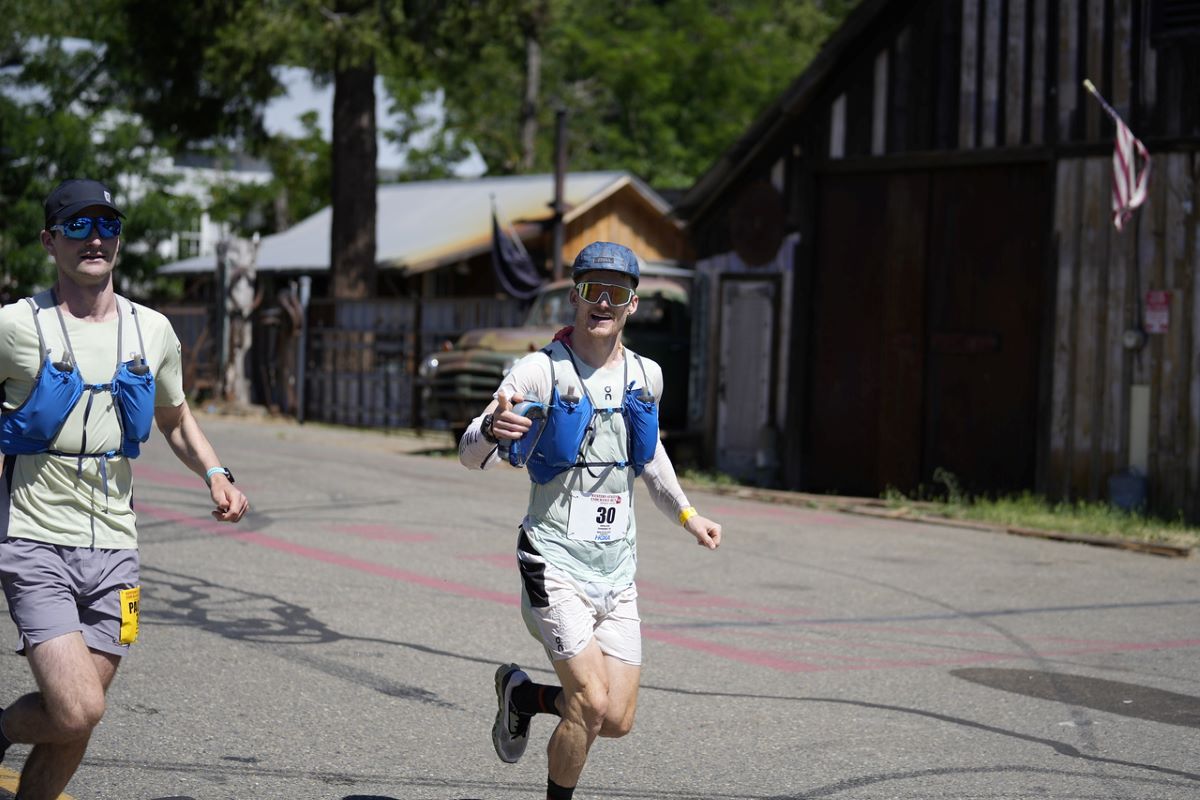
Jeff Colt (right) at the 2022 Western States 100 with his pacer, running through the village of Foresthill at about mile 62 of the race.
For the weeks that followed the 2022 Western States 100, Colt struggled massively to recover from the effort, which was compounded by the lingering effects of the virus. He said, “My body just did not recover. It was so hard to think I was recovered and go out for a run — only to get a couple of miles in and have my heart rate spike and start feeling really bad.”
He had conceded that perhaps that was a wrap on his 2022 racing season, but by September, his body was starting to come around, and he was starting to think about one last roll of the dice for 2022. He said, “I started brainstorming — maybe I’ll do the Moab Trail Marathon, maybe I’ll do the Deadhorse 50 Mile and then go back to Bandera 100k. And that week, I got the email from USATF to say I’d been selected for the 80k team [at the 2022 Trail and Mountain Running World Championships in Thailand in October].”
Colt was immensely grateful to be part of the team and described the experience as “almost like an adult summer camp. For a week, you have this team aspect, which is fully lacking from our sport. The camaraderie that Adam [Peterman], Eric [LiPuma], Adam [Merry], and I experienced out on the course — we were very much running for something bigger than ourselves — we were running for each other and for Team USA. That had a really strong impact on me.”
Through conversations with other Team USA runners, particularly last year’s third-place woman at UTMB, Kaytlyn Gerbin, Colt decided that his usual conservative style of racing was not the way to go for the world championships and that he must instead be in contact with the front of the field from the get-go. He said, “I did feel a different level of pressure.”
The team was down to four men, with the loss of David Sinclair due to an injury, and Colt and the others felt they had little chance of a podium position. But with Peterman ultimately taking first place, LiPuma taking seventh, and Colt 14th — they came away with the team win. Colt said, “I thought we were fighting for third place … and to find out that we had won, I was dumbfounded.”
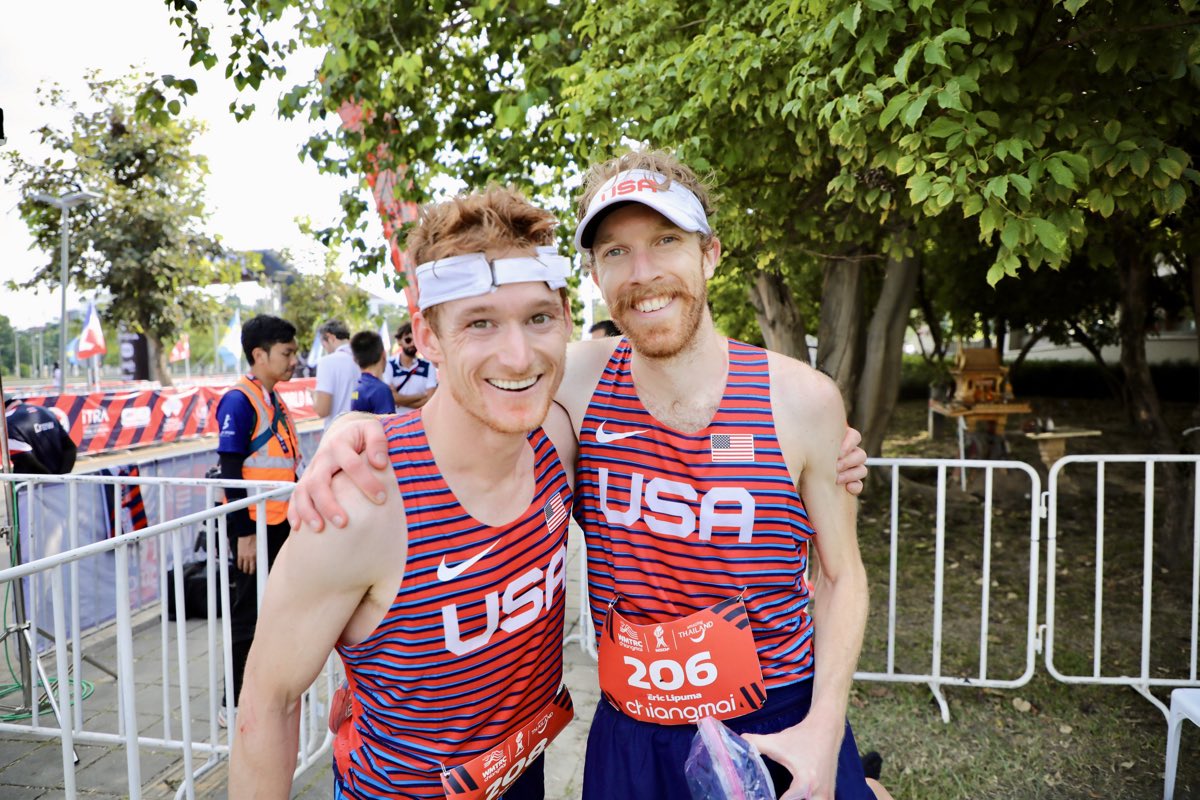
Eric LiPuma (right) and Jeff Colt celebrate their respective seventh and 14th places at the 2022 Trail World Championships 80k, which helped Team USA take men’s team gold. Photo: iRunFar/Bryon Powell
Without much time for an off-season, Colt went straight into a promising new year with a win at the 2023 Bandera 100k. Although it looked like a great run on paper, Colt said he had struggled and felt bad all day.
He said, “There are some of those races where things just aren’t clicking, and you don’t feel good, even if you’re running well.” But even if it was something of a struggle, the end result was still a win and a Golden Ticket for another shot at the Western States 100.
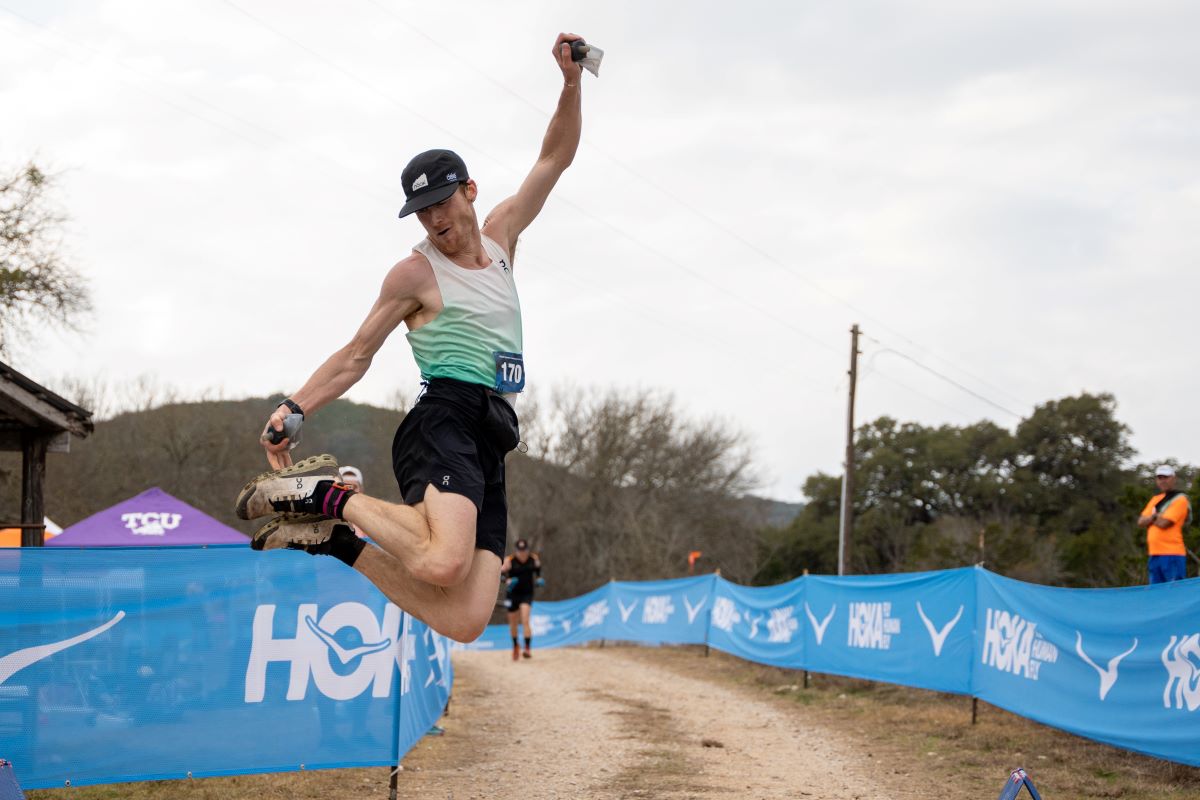
Jeff Colt celebrates winning the 2023 Bandera 100k men’s race. Photo: Jesse Ellis/@letswanderphotography
Colt is now working with Corrine Malcolm as coach and is focusing his energy on a big performance at this year’s Western States 100. Having already seen what he can do on a bad day, we wait with bated breath to watch him unleash his full potential on the historic course.
Call for Comments
- Have you been following Jeff Colt’s career?
- What are the standout moments for you?
